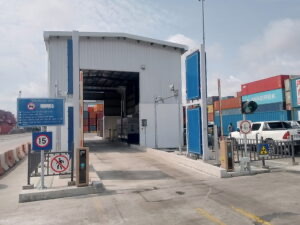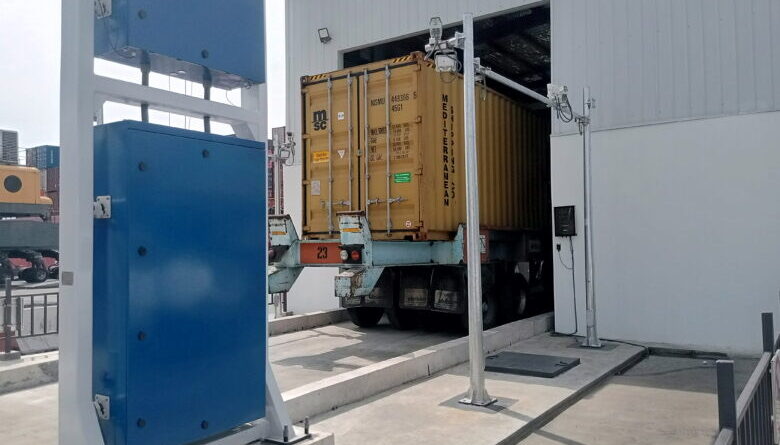New Customs Scanning System Successfully Tested, Set for Full Digital Cargo Clearance
By Raheem Ibrahim
The much-publicised high-speed scanning machine installed by the Apapa Area Command of the Nigeria Customs Service (NCS), designed to handle about 200 containers per hour, has been successfully test-run ahead of the full commencement of digital cargo clearance.
The equipment marks a major milestone in the Service’s drive toward a modern, technology-driven, and paperless cargo clearance system, following a successful test run at APM Terminals, Apapa.

The extensive trial exercise, supervised by the Customs Area Controller, Comptroller Emmanuel Oshoba, on Thursday, November 6, 2025, represents the final phase before the scanner becomes fully operational.
According to Comptroller Oshoba, the new initiative will phase out manual documentation by automatically linking scanned images to electronic declarations in real time—streamlining the clearance process, improving accuracy, and strengthening security measures.
He said, “As you can see, everything is working perfectly. We are 100 percent ready. Once a container is scanned and declared, the system automatically matches the data, analyses it, and approves release. No physical documents are needed. With this digital approach, detecting contraband like arms or narcotics becomes easier, as even small concealed items show clearly on the scan.”
Comptroller Oshoba stressed that the process would significantly reduce cargo dwell time, emphasising the importance of compliance among stakeholders to ensure the system’s success.
“The only time delays will occur is when discrepancies appear between declarations and scanned images. Compliance is now key because the system captures every detail. My advice to our trading community is to be compliant and make correct declarations,” he added.
Also speaking, the Deputy Controller of the Scanner Unit, Umar Madugu, disclosed that the scanners can handle up to 200 containers per hour, drastically reducing the need for physical examination and enabling more efficient detection of prohibited items.
He added, “The system’s image enhancement feature allows us to distinguish items clearly—whether it’s separating vehicle parts or counting drums—ensuring accuracy and precision in every scan to uncover any concealment or irregularity.”
Madugu noted that the simulation exercise covered a complete end-to-end assessment, from image capture and data transmission to evaluating the system’s resilience and efficiency.
Earlier, Mr. Niu Chao, Project Manager of Nuctech Company Limited—the equipment provider—explained that all scanned images are transmitted to a central analysis hub in Abuja, stored in a cloud database, and simultaneously displayed for local review. He further noted that the system includes a backup network that guarantees continuous operation, even in the event of a network outage.
Also speaking, Mrs. Bamidele Chinedu, Stakeholders Engagement Lead for Trade Modernisation Project Limited—the company responsible for modernising the NCS’s operations—expressed satisfaction with the project’s implementation.
“Yes, we are 100 percent ready, as our partners here have said. Everything is in order. It’s exciting to be here today to witness how ready we are to kick-start business,” she said.
The technology is expected to improve accuracy, boost revenue generation, and usher in a smarter, faster, and more secure cargo clearance era in Nigeria’s maritime sector.




